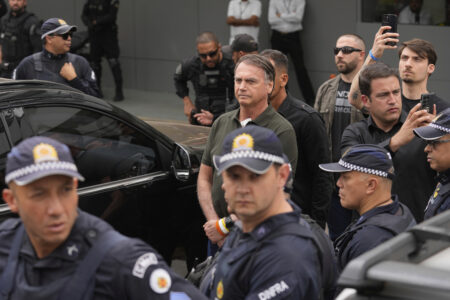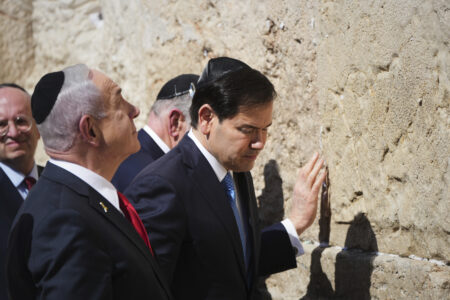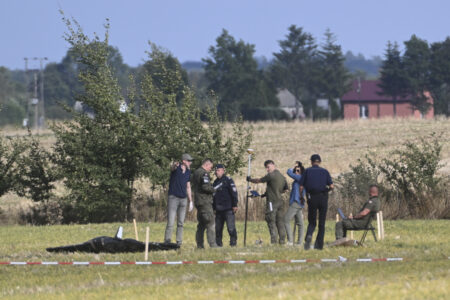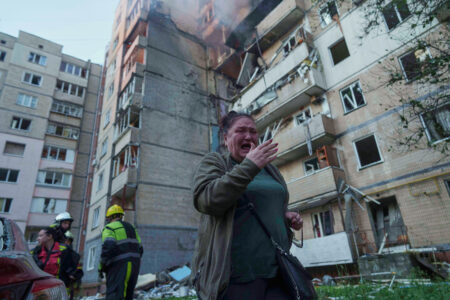Rubio visits Israel as strikes intensify in northern Gaza
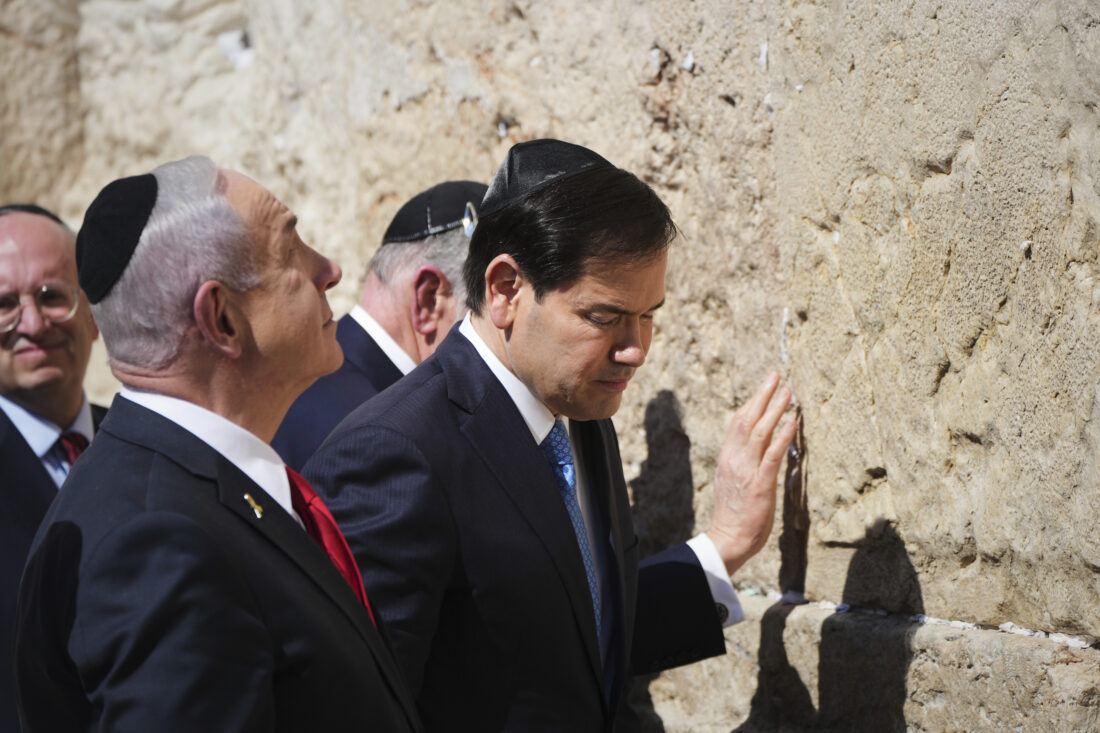
Israeli Prime Minister Benjamin Netanyahu, left, and U.S. Secretary of State Marco Rubio visit the Western Wall, the holiest site where Jews can pray, in the Old City of Jerusalem on Sunday. (AP Photo/Ariel Schalit)
JERUSALEM (AP) — U.S. Secretary of State Marco Rubio was in Israel on Sunday as its military intensified attacks on northern Gaza, flattening multiple high-rise building and killing at least 13 Palestinians.
Rubio said before the trip that he would seek answers from Israeli officials about their view of a path forward in Gaza, following Israel’s attack on Hamas leaders in Qatar last week that upended efforts to broker an end to the conflict.
His two-day visit also represents a show of support for the increasingly isolated Israel as the United Nations holds what is expected to be a contentious debate next week on commitment to the creation of a Palestinian state. Israeli Prime Minister Benjamin Netanyahu strongly opposes the recognition of a Palestinian state.
Rubio’s visit proceeded despite U.S. President Donald Trump’s anger at Netanyahu over the Israeli strike in Doha, which he said the United States wasn’t notified of beforehand.
On Sunday, Netanyahu, Rubio and their wives, along with U.S. Ambassador to Israel Mike Huckabee and his wife, toured the Western Wall and the excavated tunnels near it.
“I think his (Rubio’s) visit here is a testament to the durability, the strength of the Israeli-American alliance. It’s as strong and as durable as the stones of the Western Wall we just touched,” Netanyahu said.
On Friday, Rubio and Trump met with Qatar’s prime minister about the fallout from the Israeli operation. The back-to-back meetings with Israel and Qatar illustrate how the Trump administration is trying to balance relations between key Middle East allies despite widespread international condemnation of the attack.
The Doha attack, which killed at least six people, also appears to have ended attempts to secure an Israel-Hamas ceasefire and the release of hostages before the upcoming U.N. General Assembly session, at which the war in Gaza is expected to be a primary focus.
Meanwhile, Qatar’s prime minister denounced Israel as foreign ministers from Arab and Muslim nations met Sunday to discuss a possible unified response. Sheikh Mohammed bin Abdulrahman Al Thani, who also serves as foreign minister, said Qatar remained committed to working with Egypt and the U.S. to reach a ceasefire in the Israel-Hamas war, but that Israel’s strike represented “an attack on the principle of mediation itself.”
On Sunday, at least 13 Palestinians were killed and dozens wounded in Israeli strikes across Gaza, according to local hospitals.
One strike on a tent in the city of Deir al-Balah killed at least six members of the same family. Two parents, their three children and the children’s aunt were killed, according to Al-Aqsa Hospital. The family was from the northern town of Beit Hanoun, and arrived in Deir al-Balah last week after fleeing a Gaza City shelter.
The Israeli military didn’t immediately comment.
Associated Press video showed what appeared to be thousands of people fleeing Gaza City on the seaside road to the south with their belongings packed on cars and lorries, even as smoke rose from an airstrike some distance away. Israel has been warning residents to evacuate Gaza City as it expands its operation.
“We have begun to wish for death, death, rather than this life we live today,” said Ashraf Elwan, a young man displaced from Gaza City. “Our young men have had their limbs amputated, our women have become widows, our children have become orphans, our lives have become hell.”
The Israeli military destroyed three high-rise buildings Sunday after warning residents to evacuate. One building, part of the Islamic University in Gaza City, was struck twice and flattened. Al-Shifa hospital reported casualties, but couldn’t confirm how many, saying some bodies remain trapped inside.
Before the strikes, residents scrambled to pull out belongings, tossing mattresses from balconies and wheeling away items, including suitcases.
The military said Hamas had positioned observation points on the buildings to gather intelligence about troop movements and that militants were poised to strike Israeli troops, though it offered no evidence to support those claims.

